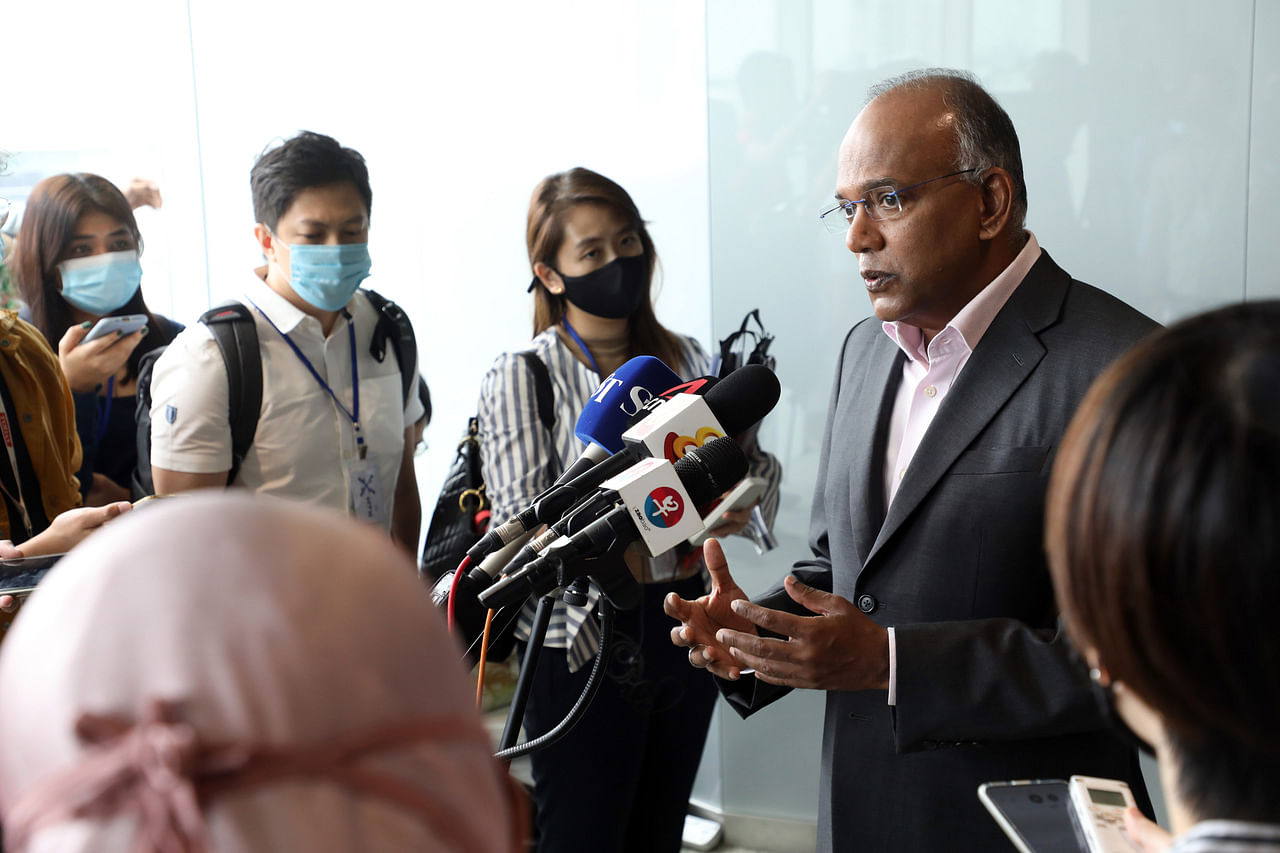SINGAPORE - Singapore's laws have enabled the authorities to act quickly on cases of suspected radicalisation and prevent terrorist attacks like the recent stabbing in New Zealand, said Law and Home Affairs Minister K. Shanmugam.
The Internal Security Act (ISA) allows law enforcement to detain people at an early stage as they are thinking of or planning attacks, he noted, adding that it also gives such suspected radicals better prospects for rehabilitation.
Speaking to reporters on Friday (Sept 10), he said there have been many serious terror incidents in various regions in the 20 years since the terror attacks in the United States on Sept 11, 2001.
Every country handles the threat of terrorism differently, and Singapore's approach is based on a few key fundamentals, he added.
The minister listed good intelligence, a zero-tolerance approach towards violent extremism and strong inter-communal relations, as well as the ISA, as factors that help Singapore deal with the limited number of radicalised cases that emerge.
He brought up the terror attack in the city of Auckland last Friday (Sept 3), where police shot and killed a violent extremist after he stabbed and wounded at least six people in a supermarket.
The attacker, who lived in New Zealand for 10 years, had been a "person of interest" to the authorities there for about five years and was arrested multiple times. He was released from custody for other offences just two months ago.
Mr Shanmugam said the attacker had displayed "very clear signs" of wanting to carry out a terrorist attack, given how he was researching how to make bombs online and buying knives. But the man could not be arrested or charged because of New Zealand's existing terrorism laws.
This would not have been allowed to happen in Singapore, said Mr Shanmugam, noting that New Zealand is now looking to strengthen its counter-terrorism laws.
"This man would have been detained under the Internal Security Act. He would not have been released two months ago. And we would have tried to rehabilitate him early, and he may well be living now," he added.
Each country has to find its own way to deal with terrorism, he said.
For Singapore, the key is to ensure that social and economic policies provide good opportunities for all, so that people feel they have a stake in the country, he added. This, in turn, helps keep extremist and radicalised cases to a limited number.

Emphasising the importance of rehabilitation, he cited the case of an early childhood education teacher who was detained under the ISA for radicalism in June 2017.
Syaikhah Izzah Zahrah Al Ansari, then 22, was the first woman to be detained for such offences. She had wanted to be a "martyr's widow" for the Islamic State in Iraq and Syria extremist group and was planning to travel to Syria with her young child. She had also supported the group's use of violence to establish and defend its self-declared caliphate.
Izzah was put on rehabilitation during her detention.
She has since been released, after getting help from Muslim scholars and the Religious Rehabilitation Group, which is a non-profit group that trains religious teachers to counsel those influenced or misguided by radical teachings.
"But in any other country or in many other countries, she might very well have made it to Syria, which is where she wanted to go, and she would likely have died there," Mr Shanmugam said.
"Or if she couldn't go to Syria, she would have continued on her path to radicalisation and become a suicide bomber in Singapore."
Asked about the Taliban's takeover in Afghanistan, Mr Shanmugam said many security agencies are concerned that the country could now provide a "safe haven" for terror groups to conduct training and access weapons to carry out their attacks.
While there is no immediate increase in the security threat here arising from the developments in Afghanistan, this is a "mid-term to longer-term" issue that Singapore needs to be prepared for, he added.
"The Internal Security Department surveys the landscape and what's happening elsewhere, both in the region and further afield, including Afghanistan. And, of course, we map that against what we need to do in Singapore, and that's an ongoing thing."


